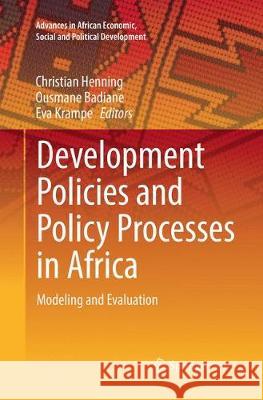Development Policies and Policy Processes in Africa: Modeling and Evaluation » książka
topmenu
Development Policies and Policy Processes in Africa: Modeling and Evaluation
ISBN-13: 9783319869186 / Angielski / Miękka / 2018 / 351 str.
Kategorie:
Kategorie BISAC:
Wydawca:
Springer
Seria wydawnicza:
Język:
Angielski
ISBN-13:
9783319869186
Rok wydania:
2018
Wydanie:
Softcover Repri
Ilość stron:
351
Oprawa:
Miękka
Wolumenów:
01











